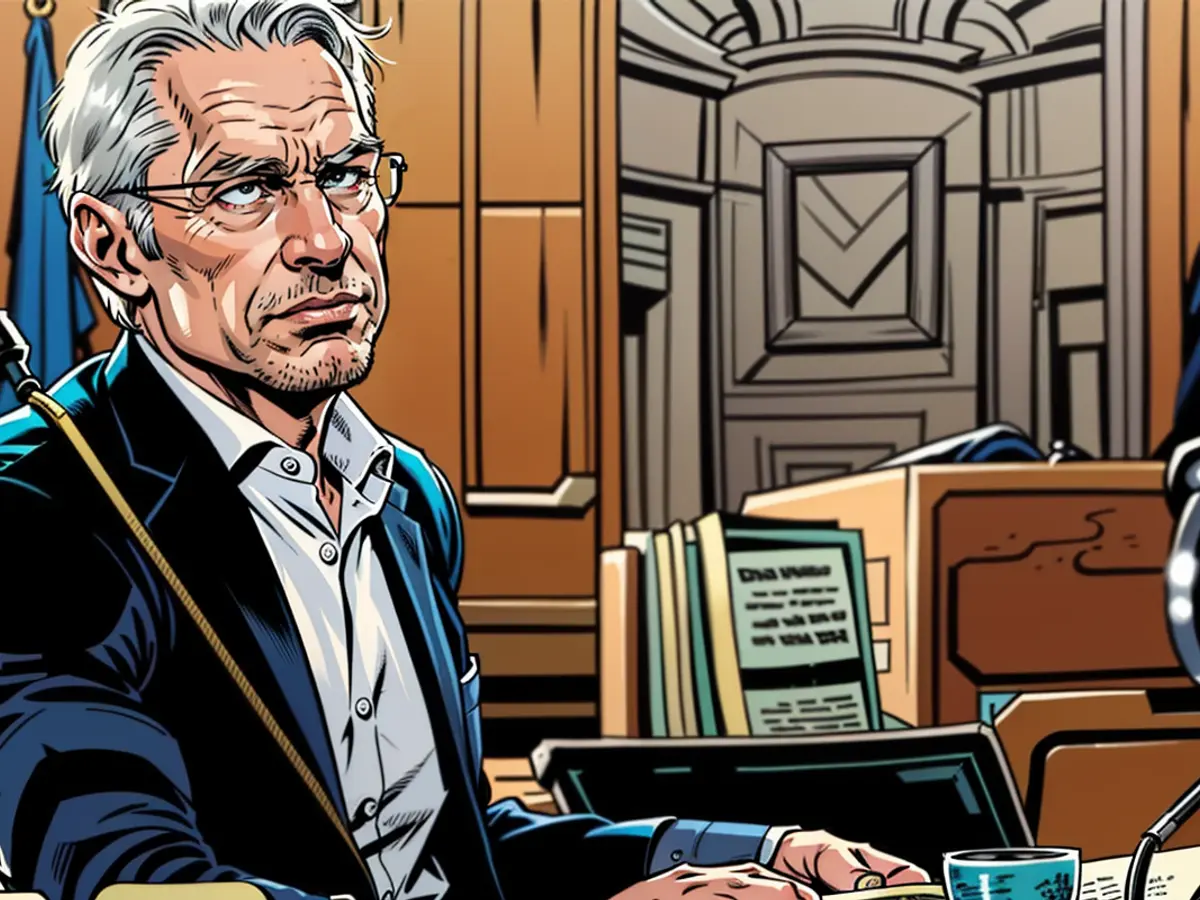Legislature reviews new governmental proposals. - Trauma Trust: Lively Discussion in the State Legislature
During an impassioned discussion, lawmakers from the Thuringian Parliament assessed the Treuhand's performance in distinct ways. Economic leftist Andreas Schubert declared in the Thuringian Parliament on Thursday that the Treuhand had perpetrated "dishonest schemes" for the rapid privatization of GDR-owned enterprises. This triggered a massive reassignment of assets, he asserted. "90% of these privatizations were spearheaded by Western Germans," stated Schubert.
The focus of the debate revolved around the final report of the Treuhand Investigation Committee. This group was formed in April 2022 and heard from 61 witnesses, including scientists, eyewitnesses, and experts. Their primary area of concern involved the privatization processes around the Bischofferode ore mine.
With the demise of the GDR, the plan was to transition the controlled economy into the market economy of the FRG. The Treuhand was assigned the responsibility for privatizing GDR-owned enterprises during the early 1990s. This institution is frequently blamed in eastern Germany for the reality that many of the sold companies have since shut down or downsized drastically, causing the loss of millions of jobs. It was also accused of preferencing West German buyers and sometimes not obtaining suitable prices. Its original director, Detlev Rohwedder, was assaulted and killed in a targeted attack in 1991.
Treuhand's relationship with the district government
Chairman of the committee Olaf Müller (Greens) emphasized the fluctuating relationship between the Treuhand and the regional government. There had been an "occasionally acute conflict situation," he explained, with "a contrast between the Treuhand's privatization mandate and the state government's mandate for regional development."
Several committee members acknowledged that not all elements of the Treuhand's actions could be covered. Müller pondered whether an investigative committee was the most suitable way to understand the Treuhand's conduct.
Mass unemployment with repercussions
"The Treuhand was essentially a pseudo-government without any democratic mandate," Schubert lamented. It "ravaged entire economies," leaving behind mass unemployment and the deindustrialization of extensive regions. To this day, Thuringia struggles with the repercussions - for instance, a "severely uneven population imbalance and an extremely fragmented business structure," according to Schubert.
The FDP member Dirk Bergner cautioned against a biased perspective on the Treuhand's actions. "Yes, there were flawed choices," he acknowledged. "Yet, to ignore the primarily dilapidated state of the GDR economy towards the end of socialism completely is a piece of historical nonsense," he argued.
Read also:
- In response to the criticism, an investigation committee was established by the Thuringian Parliament in the 1990s to examine the Treuhand's role in the privatization of East German enterprises, including the Bischofferode ore mine.
- Andreas Schubert, a member of the Thuringian Parliament, accused the Treuhand of perpetrating "dishonest schemes" during the rapid privatization of GDR-owned enterprises in the 1990s, which resulted in a massive reassignment of assets and predominantly favoring Western German buyers.
- The final report of the Treuhand Investigation Committee, presented in the Thuringian Parliament, sparked a heated debate, with some members questioning the suitability of an investigative committee to fully understand the Treuhand's conduct and its impact on eastern Germany, including mass unemployment and the deindustrialization of regions.
- The Fiduciary, Treuhand, played a significant role in transitioning East Germany's controlled economy into the market economy of West Germany during the 1990s. However, its actions have been widely criticized for causing the loss of millions of jobs and favoring West German buyers, leading to a severely uneven population imbalance and an extremely fragmented business structure in Thuringia.
- The GDR's Investigation Committee, formed in April 2022, conducted an in-depth investigation into the privatization processes of state-owned enterprises, gathering testimony from various experts and witnesses that added to the ongoing discussion and trauma surrounding the Treuhand's role in the German unification process.








